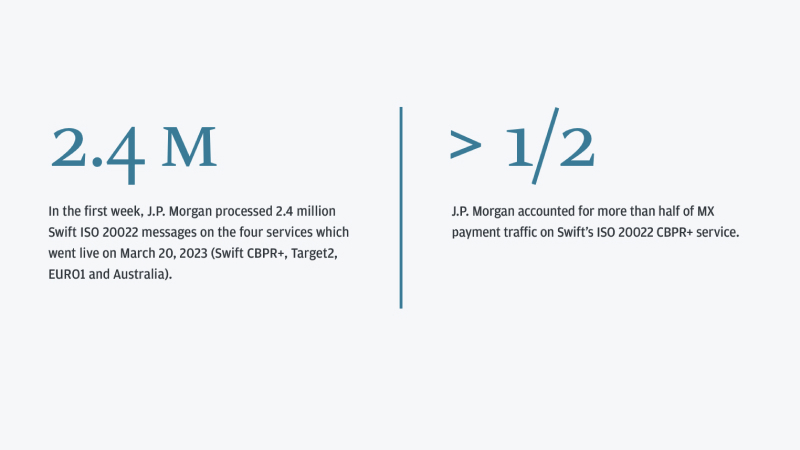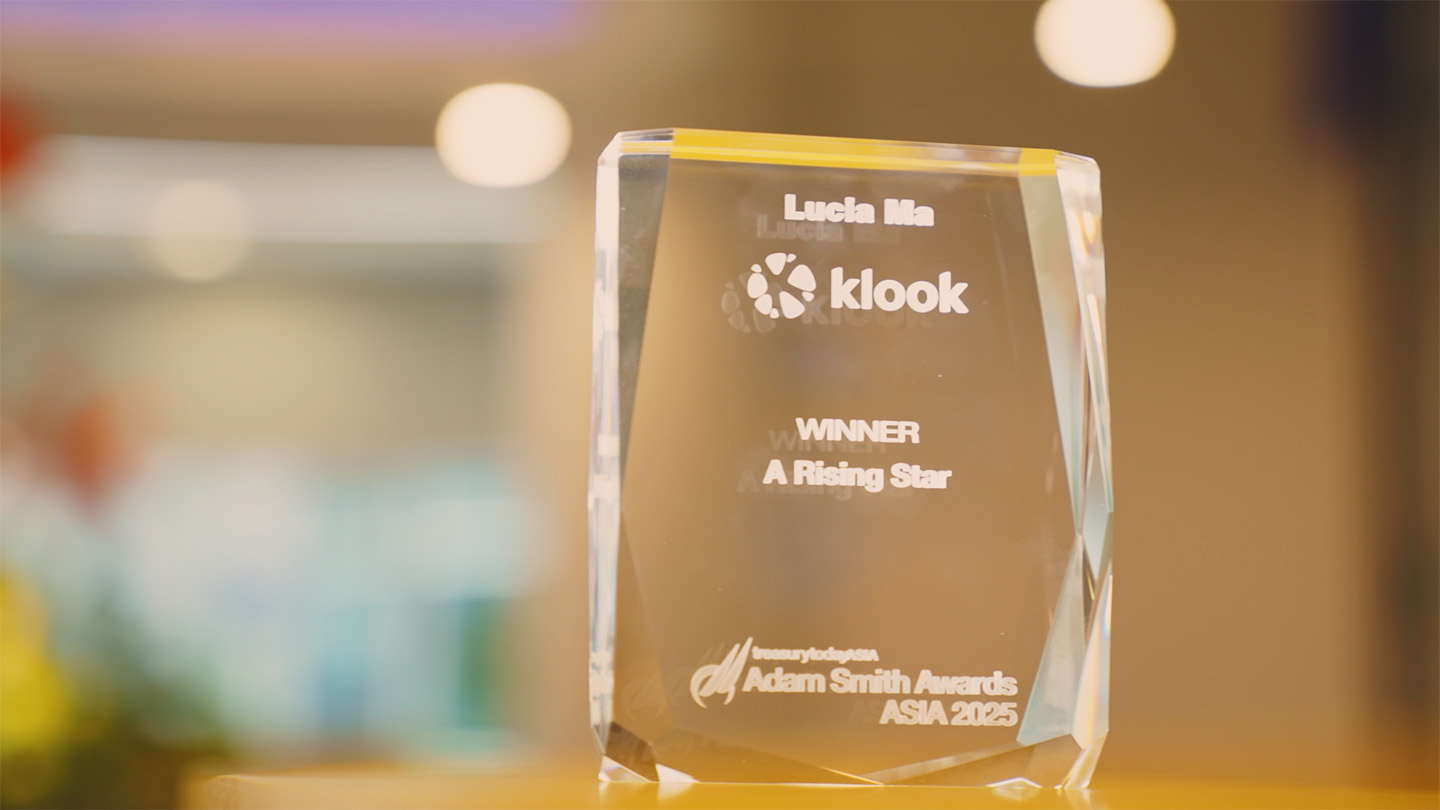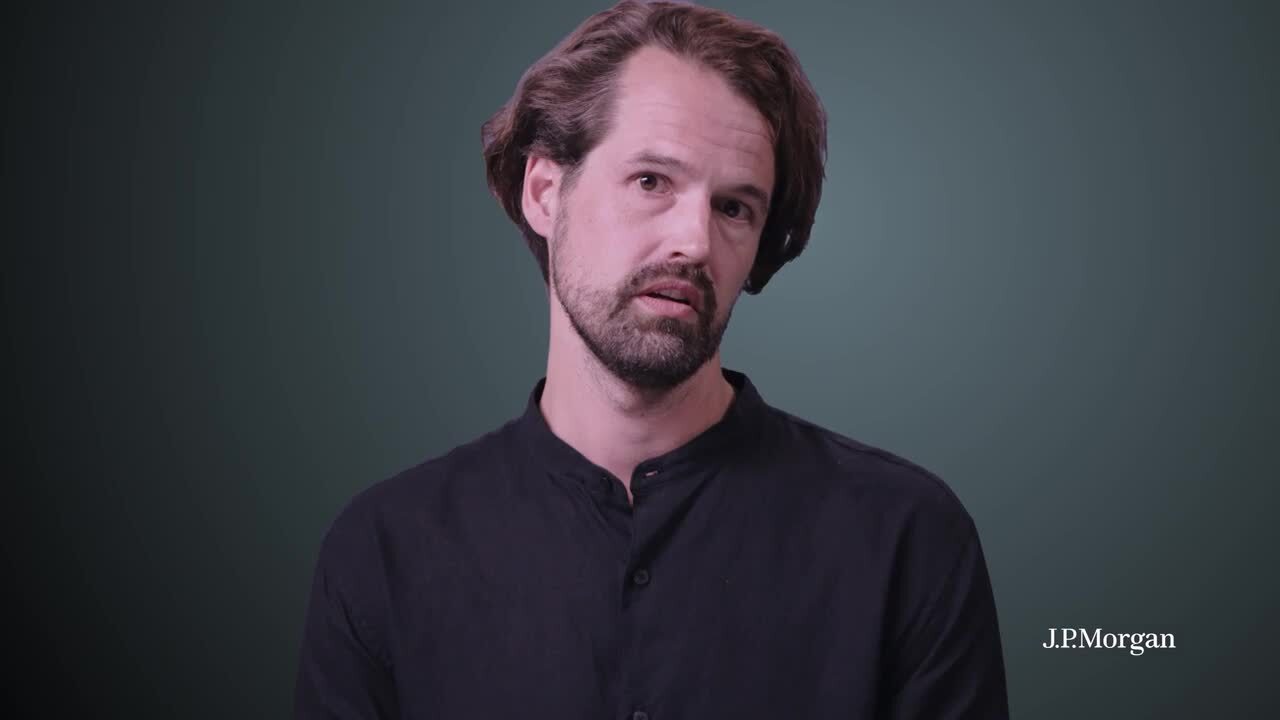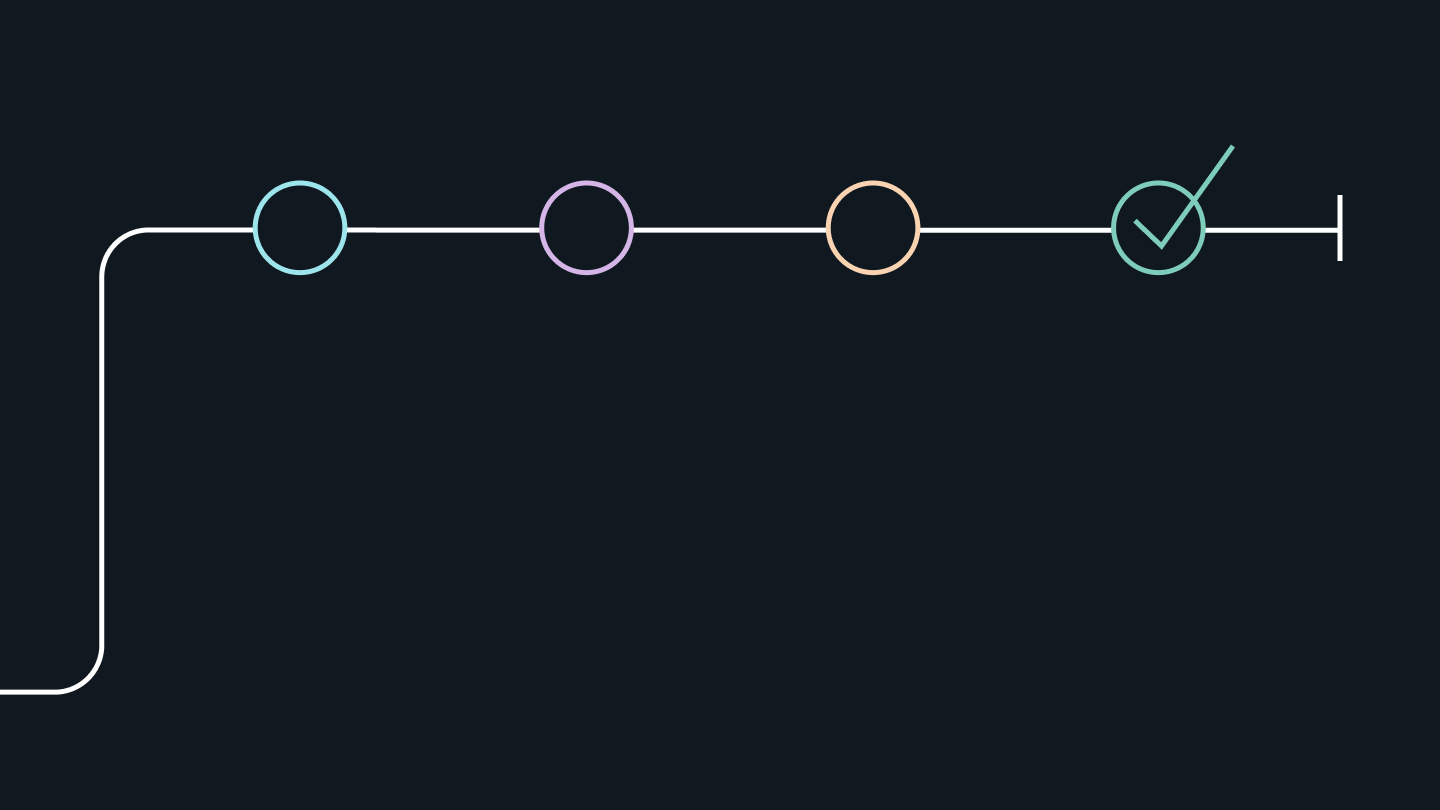
Key takeaways
- Swift introduced its Transaction Manager platform to help manage and facilitate participants’ adoption of ISO 20022 until November 2025.
- The TM platform gives businesses a centralized view of transaction data, so all participants can access it simultaneously in real time.
- The benefits of ISO 20022 are now being realized: improved transparency, better control functions and the potential for speedier processing.
Though message type (MT) standards have been in place for financial institutions for decades, a need for a consistent and improved communication system was long overdue. The decision by Central Banks and Swift to migrate to ISO 20022 represented a watershed moment for the payments industry.
MT messaging is restricted, unstructured and open to interpretation, resulting in inefficiencies and friction that affect the speed of processing and impacting straight-through processing (STP) rates. ISO 20022 is an opportunity to globally harmonize payment formats across Swift and payment market infrastructures (MI) that lead to improved operational efficiencies, increased control functions and an opportunity to harness the rich structured data that ISO 20022 allows, including higher STP rates.
To help manage the cross-border payments and reporting plus (CBPR+) coexistence period (where both ISO 20022/MX and MT can be used) and facilitate participants’ adoption of ISO 20022 through to November 2025, Swift has introduced its Transaction Manager platform.
What is Transaction Manager?
The TM platform provides a centralized view of transaction data, so all participants can access it simultaneously in real time. It brings with it the concepts of business validation rules, data integrity rules and the transaction copy. These concepts help address truncation risk by maintaining a copy of the ISO 20022 data throughout the payment chain. Indeed, if the payment goes through an intermediary that is still only sending MT, but the receiver is ready for MX, TM will restore the ISO 20022 data and send MX on to the recipient.
So, how does that encourage MX adoption, if TM restores ISO 20022 when an intermediary sends MT? And why do you need to change to MX at all? The answer: Only ISO 20022-originated payments flow via TM and gain all the benefits of the transaction copy and the business and data integrity rules. MT-originated transactions do not flow through TM.
Since May 2023, ISO 20022-originated payments started flowing through TM. Initially only payments containing rich ISO 20022 data—ramping up through to the end of September where TM is now fully enabled—and all ISO 20022-originated payments flow through it. TM is there to facilitate payment processing, transparency and frictionless payments. But unless the payment messages are formatted correctly, these benefits will not be seen.
Where the message does not meet the business and data integrity rules, TM will bypass the message. This means the payments do not receive the benefit of a transaction copy and business/data integrity rules check in future payment legs; or worse, TM will abort messages back to the sender, delaying payments and affecting end-to-end speed and creditors receiving their funds. (These aborts will need to be monitored and gracefully handled—a new business process will be required.)
Important factors for those beginning the adoption process
For CBPR+ participants that are ramping up their MX message origination or have yet to start sending MX, they will hit the fully enabled TM straightaway. Others have benefited from testing production volumes of MX messages since May 2023, thereby reducing the risk of receiving aborts. Now that TM is fully enabled to maintain the transaction copy for ISO-originated payments, there is immediate benefit in managing truncation risk. There is no further need to be sending and receiving MT199 and MT299 with respect to truncated/dropped data, as all this information can be retrieved from TM’s transaction copy.
J.P. Morgan made the decision to fully embrace ISO 20022 and the benefits it can provide by being an early adopter, supporting the receipt and sending of native ISO 20022 payment messages for Swift CBPR+ since March 2023. After almost six months, 15% of global outgoing messages were in the proper MX format—and J.P. Morgan accounted for nearly half of those. This means we have learned lessons early (see our "ISO 20022: First 120 Days Live e-book) that we’re able to share with our clients. We are the biggest single originator of MX payment traffic on Swift CBPR+, have the most traffic flowing successfully through Swift's TM, and have adopted correct message usage and formatting best practices.

Source: J.P. Morgan data via Swift Watch
What’s next?
All participants in CBPR+ should be aware that Transaction Manager is here to stay, helping drive better message usage and structured quality data. Today, only pacs.008 and pacs.009 flow through TM, but with each standards release more business and data integrity rules will be introduced, as will more message types. It is key to implement ISO 20022 correctly and set off on the right path, knowing that today's bypasses could be tomorrow's aborts.
“The transition to ISO 20022 represents a rare opportunity to address automation problems in cross-border payments systemically. TM’s business rules bring rigor and predictability to payments processing, reducing the need for banks to develop and maintain expensive custom repair logic.”
Stephen Lindsay
Business Lead, Payments Products
J.P.Morgan has met the challenges and learned lessons early. We are now starting to see and realize the benefits ISO 20022 can bring: improved transparency, better control functions and potential for speedier processing. This lays a solid foundation for the future of payments.
The bottom line: The sooner ISO is adopted by the payments community and MX messages are flowing through TM, the sooner we will all benefit from what ISO 20022 and Transaction Manager has to offer.







